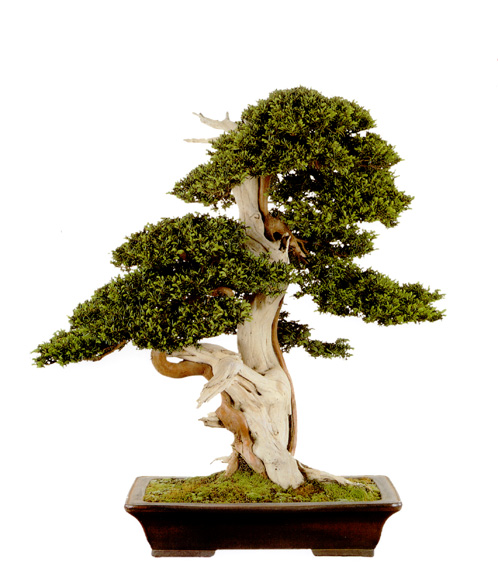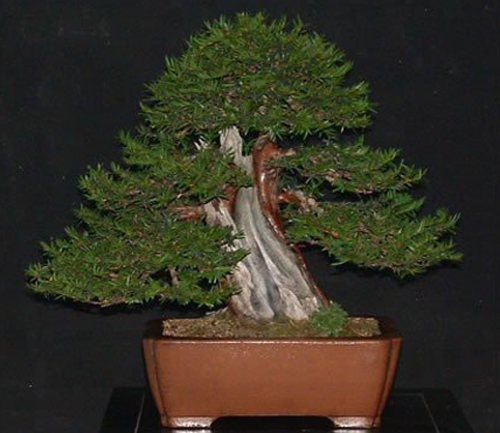 This dynamic Japanese yew (Taxus cuspidata) with is fluid play of strikingly attractive dead and live wood, and its perfectly balanced foliage, is from cover of Bonsai Today issue 89. Unfortunately, the artist’s name was lost somewhere in translation.
This dynamic Japanese yew (Taxus cuspidata) with is fluid play of strikingly attractive dead and live wood, and its perfectly balanced foliage, is from cover of Bonsai Today issue 89. Unfortunately, the artist’s name was lost somewhere in translation.
In praise of the under appreciated yew
Bad puns aside, I feel like I’ve praised yew before (right here on Bonsai Bark), but can’t find it anywhere (I didn’t look all that hard). Anyway, at the risk of repeating myself, I like yews. For landscaping and for bonsai.
Landscaping
Yews are often over used in landscaping and as a result their beauty is not always appreciated. Also, most people don’t know how to prune landscape trees, so some of their best features are usually hidden. I especially like the color and gnarly shapes that the wood takes on with age, and the brilliant yellow green new growth in the spring (right about now, here in Vermont).
Bonsai
Yews are catching on for bonsai. Not that some people haven’t appreciated them all along, but in my experience it seems that most people have overlooked them. Perhaps this is because they are so common and are almost always pruned to hide the beauty of the wood when used in landscapes. The extreme hardness of the wood probably didn’t help either. Conversely, they are tough, tough, tough, and respond to pruning and root pruning with flying colors. Carving too, if you have the patience and strength (or power tools). Once they are carved, the deadwood can be quite beautiful (especially in contrast to their striking reddish brown bark). As an extra plus, yews are more rot resistant than most trees.

It’s all about the broad shari (and the massive trunk that supports it) with this Taxus baccata (English yew). That and the sleek shiny reddish wood. The photo is from Ivo Saporiti’s website.
i’ve always loved yews. if I had to choose two types of trees it would be yews and larches
Not choices. I’ve got a soft spot for both also.
Yeah, not bad choices. You’d like northern Vermont if you like larches.